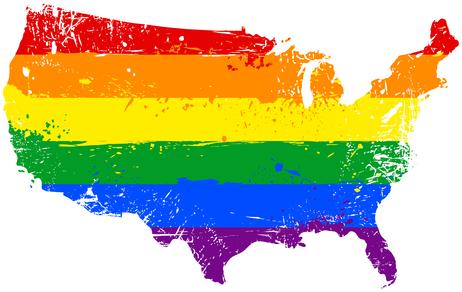High school students have many options in extracurricular activities today, allowing them to explore a wide range of interests. For students who want to move beyond the basic theatre productions, school newspaper, and high school athletics, there is another choice available at a growing number of schools today – atheist clubs. These organizations of self-proclaimed free-thinking students have been cropping up at high schools from coast to coast, thanks in part to the rising number of religious clubs that have also been making their way into classrooms today.
The Rise of Atheist Clubs
According to the Huffington Post, the increase in atheist clubs is being fueled in part by an organization known as the Secular Student Alliance. This group is responsible for placing more than 300 college-based clubs into schools nationwide for free-thinking students, and it is now moving into the high school realm.
This video reports on an atheist group's activities.
The director of the high school program for Secular Student Alliance, JT Eberhard, told the Huffington Post that he would like to see the rise in both atheist and other religious clubs inspire a dialogue between all students. In addition, Eberhard said, “I also hope it will let the atheist students know that you can be an atheist and it’s okay.”
At the start of the 2011-2012 school year, there were approximately one dozen clubs established at high schools across the country. This summer, that number has risen to 39 groups in 17 states, and 73 schools have requested information from the Secular Student Alliance about how to start an atheist club at their location.
The Washington Post reports that many of these clubs are found in states that have a number of residents claiming no religious affiliation, including Washington, New York, and California. However, a significant number are also coming into “Bible belt” states like Alabama, Texas, North Carolina, and Louisiana. In some cases, students are able to establish their clubs with little resistance from school administrators, although others have had to fight harder to get the school staff to accept and allow their groups to meet.
Legal Ramifications of Atheist Clubs
Despite the fact that some school administrators are uncomfortable with the idea of an atheist club, students who want to form the groups are protected by the Equal Access Act of 1984. U.S. Legal describes the Equal Access Act as legislation that compels public schools to provide equal access to extracurricular clubs. The act was originally designed to allow for the establishment of Christian clubs within public schools but has also been used to support clubs of different religions, as well as Gay-Straight Alliances.
Rev. Barry Lynn, one of the co-authors of the Equal Access Act, told USA Today that the legislation provides “a free speech benefit” to believers and atheists alike. Now, with the help of the Secular Student Alliance, atheist students around the country are taking full advantage of the law, by organizing their own groups of student skeptics, free thinkers, and those that simply want to explore both sides of the religious issue.
This video offers advice on starting an atheist group.
In order to start an extracurricular club at a school, according to the Equal Access Act, students must be able to demonstrate student interest in the club and attract a faculty sponsor. When the group abides by these guidelines, no club can be discriminated against based on politics, religion or philosophy. The club cannot interfere with the “orderly conduct of educational activities within the school.” Schools can also opt-out of the act entirely, by prohibiting all extracurricular clubs that are not curriculum-based.
Today, as more Christian groups have trumpeted their rights to form clubs within the schools, atheists, and other groups are taking notice. The Secular Coalition for America asserts that Jay Sekulow, the director of the American Center for Law and Justice, has championed many of these efforts, by defending religious groups in the American court system. However, Sekulow’s efforts may very well be the same path to allow groups of Jews, Muslims, Buddhists – and even atheists – to take advantage of the same legal protections upon which Christians have learned to call.
The View of Atheists in Public School
According to atheists who have attempted to start their own clubs in public schools, the problems do not lie as much with their legal protection as with the attitudes of other students, teachers, and administrators. A student at an Oklahoma high school organized one meeting of his new atheist club before getting pulled into the principal’s office and accused of starting a “hate club,” according to USA Today. His sponsor teacher withdrew from the club the next day, telling the student continuing his participation would be “a bad career move.”
However, other students have been able to form clubs with little or no resistance from staff or other students. Trevor Lynn, a high school student in Eureka, California, faced no problems when he began his own atheist club at school.
“The administration of our school really prides itself on being able to have a club for everybody,” Lynn told the Washington Post. “They saw no reason to stop us.”
In some cases, it may be the approach of the club members that impacts most directly the reaction from the rest of the school. The New York Times reports on a successful club started at Rutherford High School in Panama City, Florida. The faculty sponsor of the group, Michael Creamer, encourages his students to be friendly and non-confrontational when dealing with other students that do not share their beliefs.
“Mr. Creamer told us, as an atheist, you have to be on your best behavior,” one club member told the New York Times.
Questions? Contact us on Facebook. @publicschoolreview














